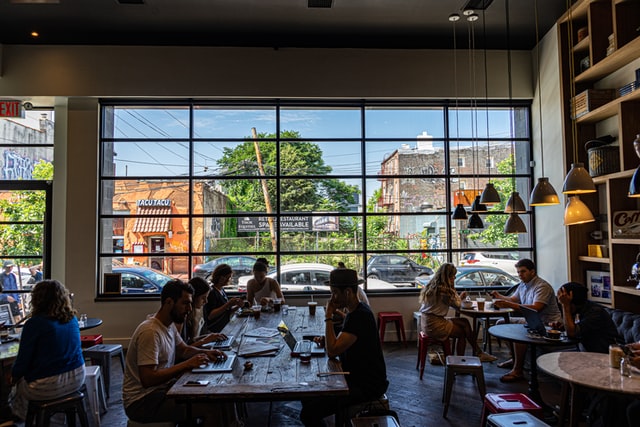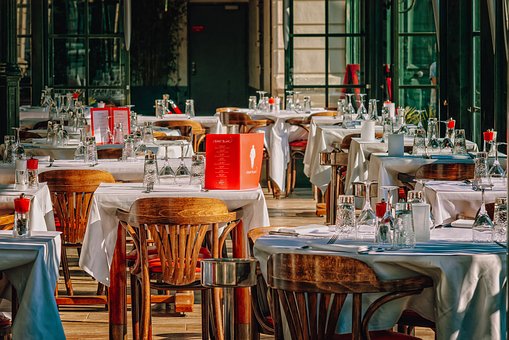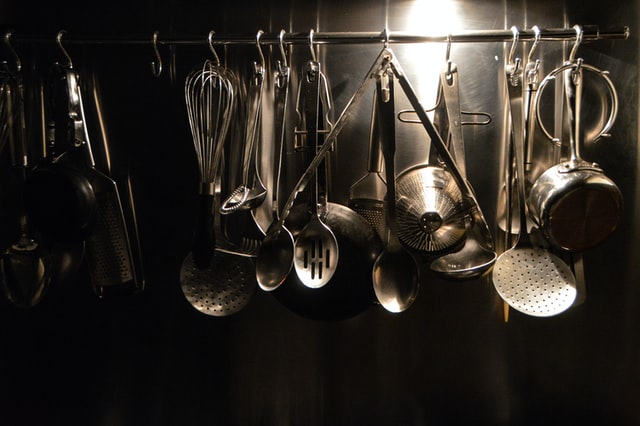Table of Contents
Restaurants like old keepsakes and objects of emotional attachment, bring about memories of good times had with friends, family or me time. The industry thrives on experimentation and introducing new foods to customers to keep themselves in reckoning. While some restaurants like McDonald’s thrive by providing the same food day in day out, restaurants at large try to impress their clients with ambience, awesome food and good service, which result in good reviews and repeat customers. Like someone said, it is easier to be faithful to a restaurant than it is to a woman
Restaurants are not just about people eating out. They are more of a place where family, friends, business associates get together to have fun conversation over scrumptious food. Restaurants could be hole-in-the-wall, small cosy places where people get a specially chosen menu of select food. Then comes the chain of restaurants, who ensure that the experience throughout the chain is consistent and provides a connection with the consumers. Finally, there are the hi-end gourmet experiences that are curated for niche clients who are particular about what goes into their food and how. While all restaurants swear by fresh produce and perfect hospitality, the niche restaurants take it to a totally different level and ensure their clients get the experience of a life-time. They reinvent from time to time and the menus are not fixed. They operate depending on the season, the produce available and experimentation.
In all, restaurant business is a lucrative business as it combines good times with delectable food. Makes happy memories for discerning clients both in terms of time spent at the restaurant and the menu enjoyed.
As per corporate business strategist, astro guru and business development pro, Hirav Shah shars restaurants are good business if run with the same business acumen as an organisation. The supply chain and logistics play an important role in restaurants with years of history. Goodwill, trust and eye for the very best, is what makes restaurant business both challenging and interesting.
Let’s figure out FAQs concerning the restaurant business:
1) How does one go about opening a restaurant?
Like all other businesses that are started with the idea of having long innings, opening a restaurant takes a good amount of careful planning. It starts with finding the perfect location and deciding whether to build, rent or buy a property.
But the most important part is to come with a menu that is attention-grabbing and do a thorough research of the competition.
Also, if you are in start-up mode, then you will also have to figure out the financing part says Business Strategist Hirav Shah.
2) How does one choose an ideal location for a restaurant?
Location is crucial for a restaurant. Sometimes, a restaurant right in the middle of a bustling street can end up being a dud, while a run-down mill could make for an ideal setting. Location becomes rather important, especially during the initial years of establishing it.
a) Good parking is a must
b) Advertising, spreading word of mouth information, reviews are a huge help to make the customers recall the restaurant and stop by for a meal.
c) Size matters. Carefully consider the space that is required for the kitchen and various appliances there. Then there has to be space for paperwork and lastly, the dining space must have enough space for a wait-station and a bar.
d) Keep off unlucky places. In some locations, restaurant after restaurant fails. This makes customers associate it with a dud, so be savvy.
e) Another important point is to make sure the building follows all safety measures to the T. Make sure it has restrooms, ramps, proper wiring, fire alarms, sprinklers and the works.
f) Check out your neighbourhood. Find out if there are similar restaurants with the same theme. Also, find how the stores in the area are doing. Successful businesses attract other successful businesses.
g) Starting a restaurant in a place with the right vibes and ambience will bring in customers, but opening one out of town, will not get regular customers.
h) Bargain about the lease and have a clear understanding of who pays what in terms of maintenance.
i) Be patient. Check out the area and visit various restaurant spaces before zeroing on one.
j) In case you are leasing, make sure you start off with one-two years. Once the restaurant gets established, the lease can always be extended.
3) What are the guidelines for opening a restaurant?
● If you are taking finance, make sure you are in touch with people ready to provide finance. Angel investors also come handy for plush restaurants.
● Have a clear business plan, concept and design in place. This will help the investors trust you. It will also help you in establishing your business.
● Start a food truck if you are short on finances, but want to be independent. It seems like work and inconsistent earnings, but if it becomes successful with customers, then you can move on to getting a permanent space.
● Another easy way to test waters is by starting one’s own catering business. Thanks to social media, food trucks and catering businesses reach out to returning customers. When you open a restaurant, you can rest assured of a reliable customer base.
4) What are the tips to remember before taking the final plunge?
a) Make sure restaurant business is for you. Wanting to do something and actually doing it are two different things. Do complete market research and gauge your skills before starting one.
b) Running a business requires a special set of skills. Right from handling staff, to understanding logistics and supply chain detailing, to being comfortable with numbers and getting acquainted with rules and regulations of starting one says Business Advisor and Business Astrologer Hirav Shah.
c) Learn how to handle conflict. This is important in any business. Conflicts could arise within the kitchen, with the landlord, with neighbours, with the authorities, etc. It is best to come prepared, instead of regretting later.
d) It’s an appointment to have a clear-cut plan for the business. Researching and gathering information on different areas will make life easier once the restaurant is up and running.
e) Ideally outsource work like laundry service, payroll processing, social media marketing, website maintenance and cleaning. Know when to outsource as this will take off a lot of burden in day to day activities.
f) Know your technology. It will help to make the tasks easy.
g) Having a support network is equally important. Amidst all the hustle and bustle of running a busy restaurant, it feels safe and secure to feel there is someone for you to lean on.
5) What is the ideal way to come up with an enticing menu?
There is software to help you with coming up with appealing menu cards. It’s also important to take impressive pictures as customers often go by pictures in judging a restaurant. However, the bottomline is that the quality of food and ambience match up to the customer’s restaurant says Hirav Shah, who has tremendous experience working with world’s leading restaurants chain and individual restaurants also.
6) How does one stock up for the restaurant?
One of the biggest investments that goes into opening a new restaurant is the kitchen. A commercial kitchen needs industrial-grade equipment that can withstand busy restaurant use. The layout of a commercial restaurant kitchen must be planned to allow food to flow seamlessly from the prep area to the line.
7) What’s an ideal way to handle customer feedback?
Customer comments make for an ideal way to get the most important feedback. It becomes valuable if the comments are from repeat customers. It is best to have a simple, straightforward questionnaire for best results.
It is also pertinent to take the customers’ phone numbers, emails, etc.
Of course, with social media, you can opt for feedback on social media, but that could work like a two-edged sword, with some customers going overboard with their comments, which can impact the restaurant’s reputation.
So customer comments are ideal.
8) What is the total worth of restaurant business globally?
The global restaurants and mobile food services market is expected to decline from $2,898.3 billion in 2019 to $2,812.4 billion in 2020 at a compound annual growth rate (CAGR) of -3%. The decline is mainly due to economic slowdown across countries owing to the COVID-19 outbreak and the measures to contain it. The market is then expected to recover and grow at a CAGR of 8% from 2021 and reach $3,456.6 billion in 2023.
Restaurant industry is projected to hit $1.2 trillion in sales by 2030.
9) What is the worth of restaurant business in India?
The size of India’s restaurant industry is estimated at Rs 4.2 lakh crore and organised restaurants account for 35 percent of the industry. According to ratings agency CRISIL, the organised restaurant business will take at least a year to recover from the pandemic.
10) What are the best restaurants across the globe?
World’s Best Restaurants 2020
● Momofuku Seiōbo (Sydney, Australia)
● Pasture (Auckland, New Zealand)
● Fleet Restaurant (Brunswick Heads, Australia)
● Lasai (Rio de Janeiro, Brazil)
● El Chato (Bogotá, Colombia)
● Boragó (Santiago, Chile)
● Sud, o Pássaro Verde Café (Rio de Janeiro, Brazil)
● Jacinto (Montevideo, Uruguay)
Do add them to your must-try list asap.
11) Which restaurants make the most money in the world?
● McDonald’s: $37 billion in system-wide US sales.
● Starbucks: $13 billion in system-wide US sales.
● Subway: $10.8 billion in system-wide US sales.
● Burger King: $10 billion in system-wide US sales.
● Taco Bell: $9.8 billion in system-wide US sales.
12) What are the most expensive restaurants globally?
The Most Expensive Restaurants on Earth
■ Methodology.
■ Chef’s Table at Brooklyn Fare (New York, New York)
■ Alain Ducasse au Plaza Athénée (Paris, France)
■ The French Laundry (Yountville, California)
■ Guy Savoy (Las Vegas, Nevada)
■ Restaurant de l’Hôtel de Ville (Crissier, Switzerland)
■ Ithaa Undersea Restaurant (Maldives)
■ Kitcho Arashiyama Honten (Kyoto, Japan)
Restaurants are a huge business in the food segment means what a restaurant offers is directly proportional to its success, concludes Business Strategist, Restaurant Astrologer and Restaurant Advisor Hirav Shah.



































































